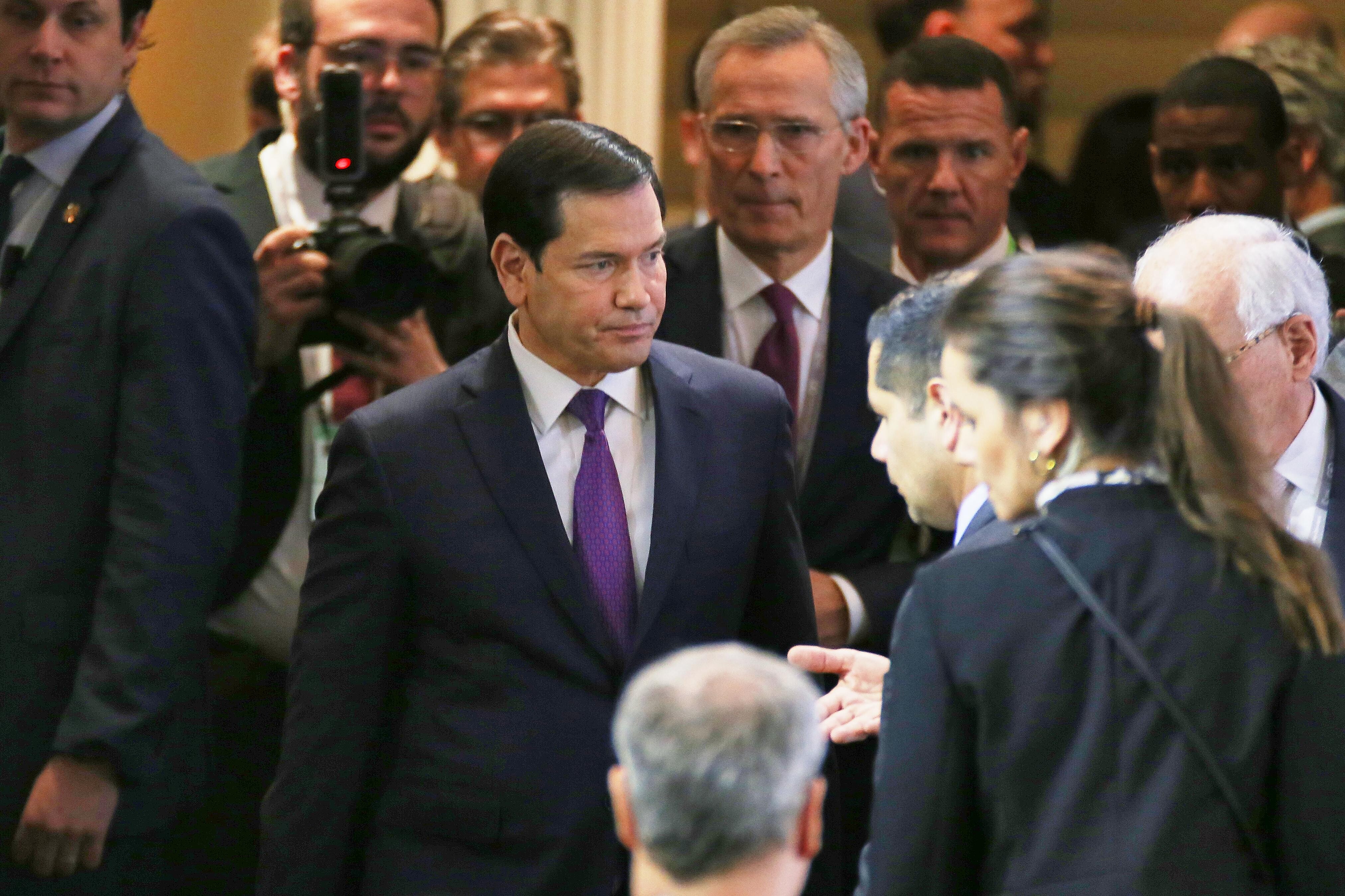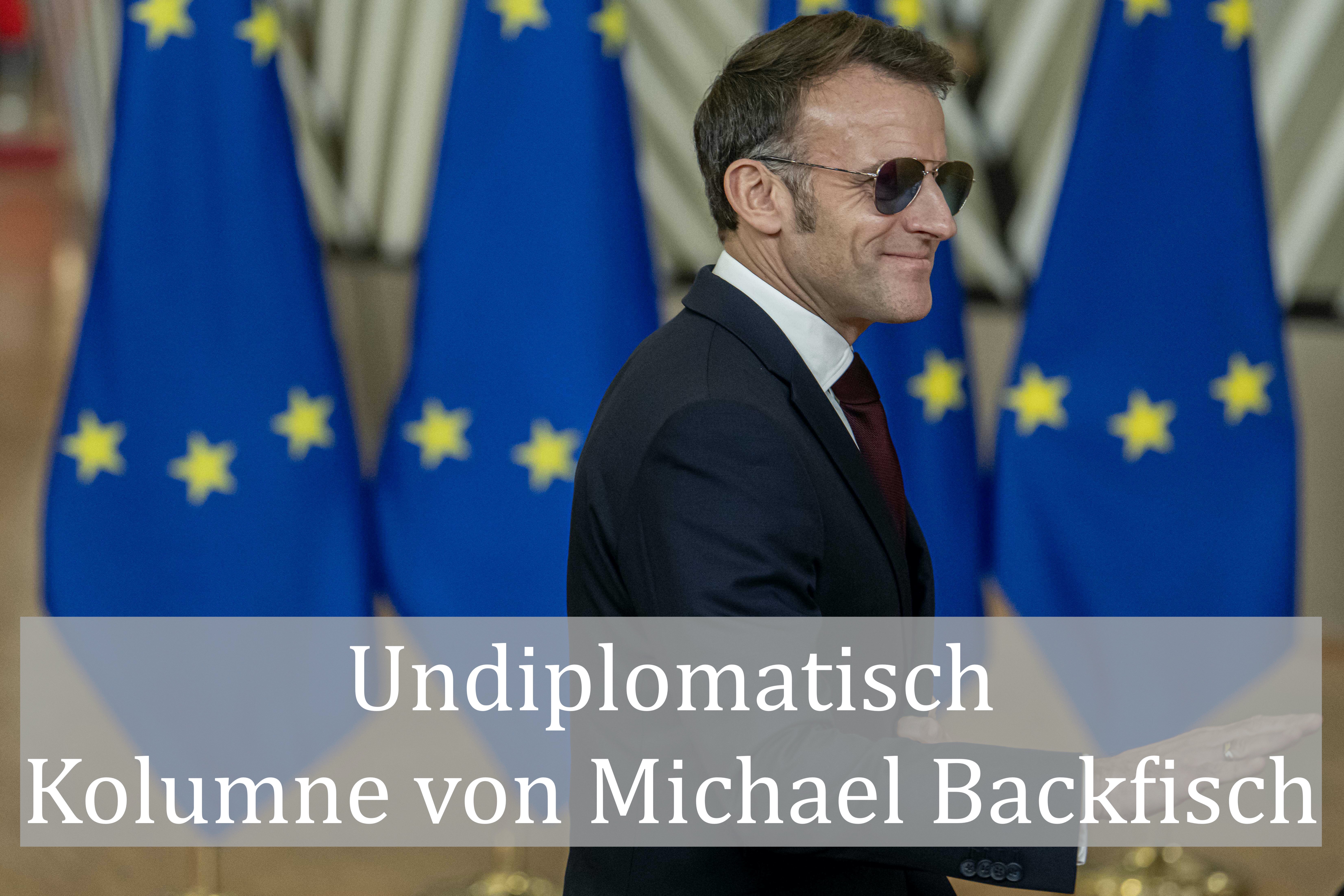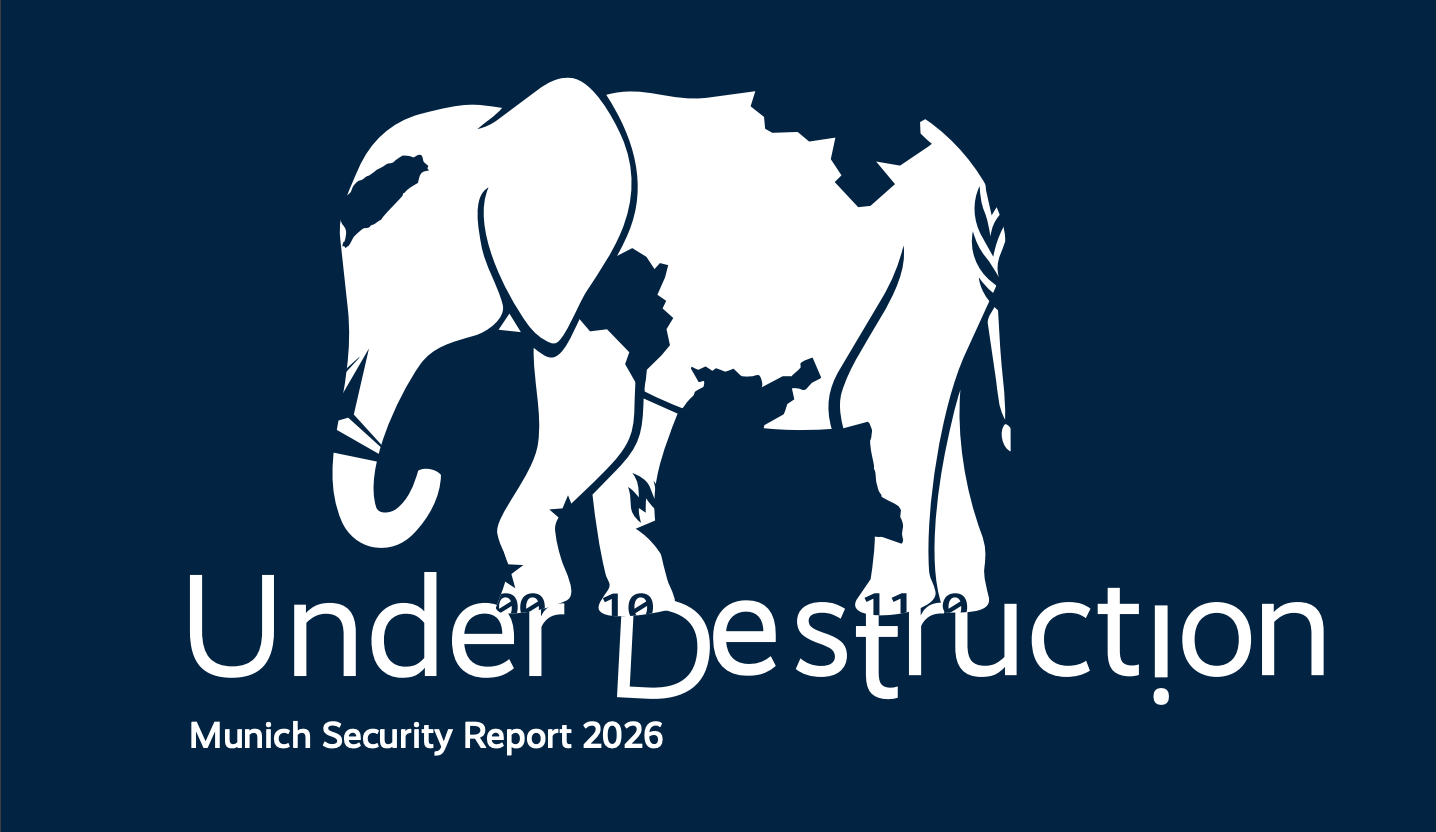diplo.news
Horst Teltschik: Someone must finally take on the leadership role
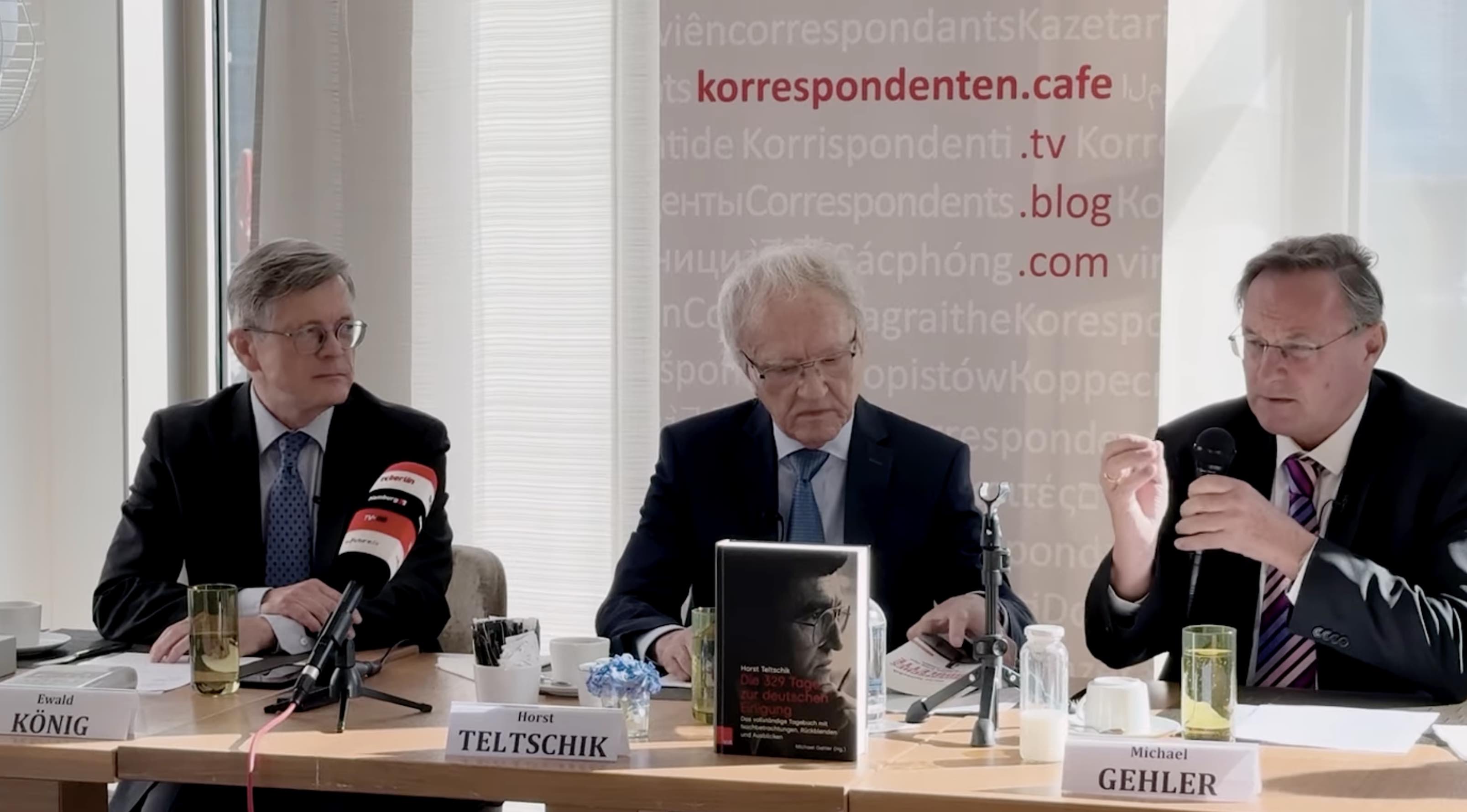
A historic appointment for journalists and diplomats who took part in the korrespondenten.cafe with Horst Teltschik and Michael Gehler: Teltschik is 85 years old and, as foreign policy advisor to Federal Chancellor Helmut Kohl, was closely involved in talks with Mikhail Gorbachev and the process of reunification. The later chairman of the Munich Security Conference evaluated his diary together with Prof. Michael Gehler and wrote the 1,000-page book ‘Die 329 Tage zur deutschen Einigung’ (The 329 Days to German Unification). Teltschik commented in detail on the conflict between Russia and Europe, considers talks with Putin indispensable and misses leaders in Europe. diplo.news documents the most important parts of the conversation.
Telchik: “How can we escape the threat of war? ”
I am delighted to have been invited to korrespondenten.cafe because there is one issue that is burning in my mind: How can we escape from this difficult situation of imminent threat of war? How can we end it? How can we achieve a peaceful solution? How can we persuade President Putin to accept a peaceful solution and usher in a period of peace throughout Europe? That is the key question of our time.
Once, when I was no longer in office, Putin asked me to be available to advise him during talks. I didn't have to think twice; I found it exciting that he was interested. The first conversation I had with him in Moscow concerned the preparation of his speech in the German Bundestag. On the way back to the airport, his colleague asked me if I could also send a written draft, which I did. I put some thoughts down on paper and sent them to him. Of course, I then followed his speech in the Bundestag with great interest.
He focused on one thing in particular: the question of how he sees Russia's role in Europe in the future and whether Russia sees itself as part of Europe or is oriented towards Asia. His position was clear: Russia is part of Europe.
Issues not addressed
Putin's speech at the time and his line of thinking were not taken up, nor was the speech by Chancellor Merkel, who had spoken immediately before Putin. The Chancellor also made a new proposal to Russia and signalled how relations between NATO and Russia should be developed further. But the forum did not take up the issue. No one asked her what she meant by this and how she planned to achieve it. And none of the participants asked Putin what he thought of the Chancellor's new proposal. As a result, the topic was discussed in a very one-sided manner – as the beginning of a new Cold War.
A year later, Dmitry Medvedev, the interim president, gave a speech at the Hotel Adlon in Berlin, in which he also tried to further develop relations with NATO and Germany. There was also no response from German politicians. I therefore claim that opportunities have been missed here. Of course, we do not know how far they could have been implemented.
Is there a threat of a Chechen pattern?
Given the current situation, with war raging in Ukraine and our own country also arming itself, what is the outlook? To start with the most negative scenario, there could be a brutal development similar to what we saw in Chechnya. The capital, Grozny, was mercilessly bombed. Can we rule out the possibility that this will not also happen to the capital of Ukraine at the last minute? Personally, I do not rule it out.
And if it does happen, what will the West do? Or is there still a chance of reaching a modus vivendi between Russia and the Europeans and NATO?
That is why I am still in favour of talks, not so much between Trump and Putin, but between reasonable Europeans and Putin.
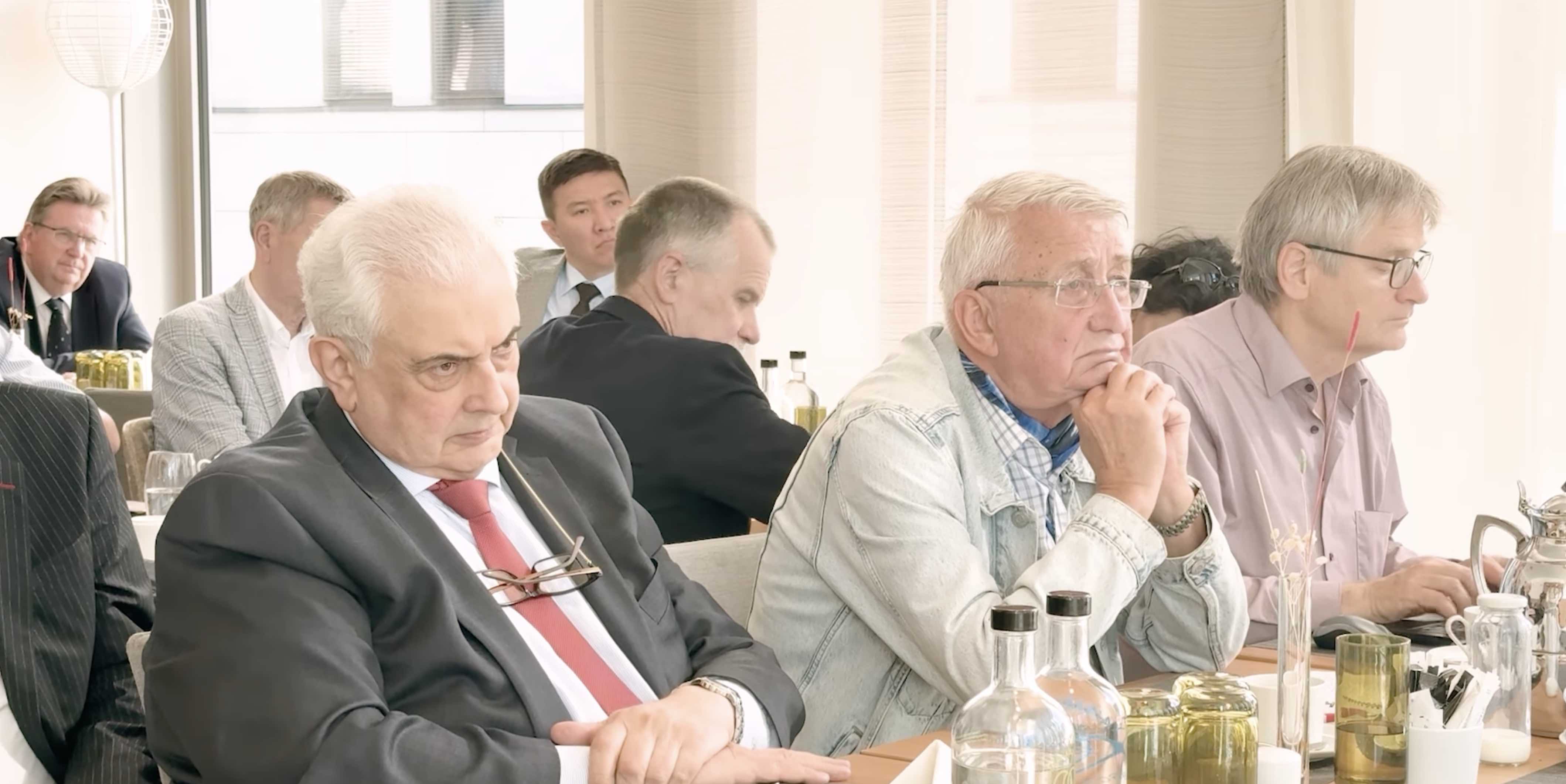
Probing, feeling out, talking
If we look briefly at post-war history, how did the Americans react to the Cultural Revolution in China? They sent Henry Kissinger there to probe. Or think of Willy Brandt and the role of Egon Bahr, who in principle did nothing but probed, sampled and had initial discussions. I would try anything to get together for a reasonable conversation. Gerhard Schröder could have played this role, but he presented himself immediately. But it doesn't work that way.
There must be someone who conducts confidential discussions on behalf of the Federal Chancellor. I think this is role model action, even though it is unpleasant. I've always said to Helmut Kohl that we can't choose our partners. You have to get to know the guys, you have to experience them, you have to start somewhere with them. Something can happen suddenly. So how do we make it possible for talks to start again and to discuss solutions?
Talks with Russia are essential
I am of the opinion that we must find ways to restart talks with Russia bilaterally and multilaterally. I think that is essential. It is not a question of whether we like Putin or not. The question is: How can we achieve it? I would try today to develop a level of dialogue between the Federal Republic of Germany and Russia, between the EU and Russia, and NATO and Russia.
Someone must take on a leadership role
We must work together within the EU. And if that is not possible with Hungary or others, we need a nucleus of leaders who say, we are now taking the lead in terms of content and facts. Who Takes the Lead in the European Union today? We absolutely need a nucleus as a driving force. Germany, France and Poland would be ideal, but this is becoming increasingly difficult.
Our Federal Chancellor would now have to consider with whom he is working most successfully. If it doesn't work there, he must also have a kind of parallel organization outside the EU institutions. You have to do that tactically wisely and at the right time. But you need such a driving force, someone who takes on the leadership role.
What did Merkel and Putin agree on?
After all, we had a female chancellor who set a record number of talks with President Putin. To this day, we have not found out what they actually discussed with each other. What were the suggestions? Which direction do you go together? Or do you fight yourself? Boiled down to its essence, it's probably pretty thin.
I asked Putin what he thought of the Federal Chancellor. I then wrote her a letter and told her what he had said about her. In fact, that was extremely positive. But I didn't get an answer. That's when a girl from the Chancellery called me: “The Federal Chancellor thanks me.” What was that about? Maybe we could have discussed it briefly on the phone.
The short time frame between February and September 1990
Historian Michael Gehler on Teltschik's contribution to German reunification
“The diary is like a keyhole through which you can see Horst Teltschik standing at the Chancellor's table discussing what to do next. We experience the atmosphere and mood in the Chancellery.” The historian, professor at the University of Hildesheim, about his work with Teltschik's diary: “For lovers of detail, it's a feast; for me as a historian, it's like Christmas.”
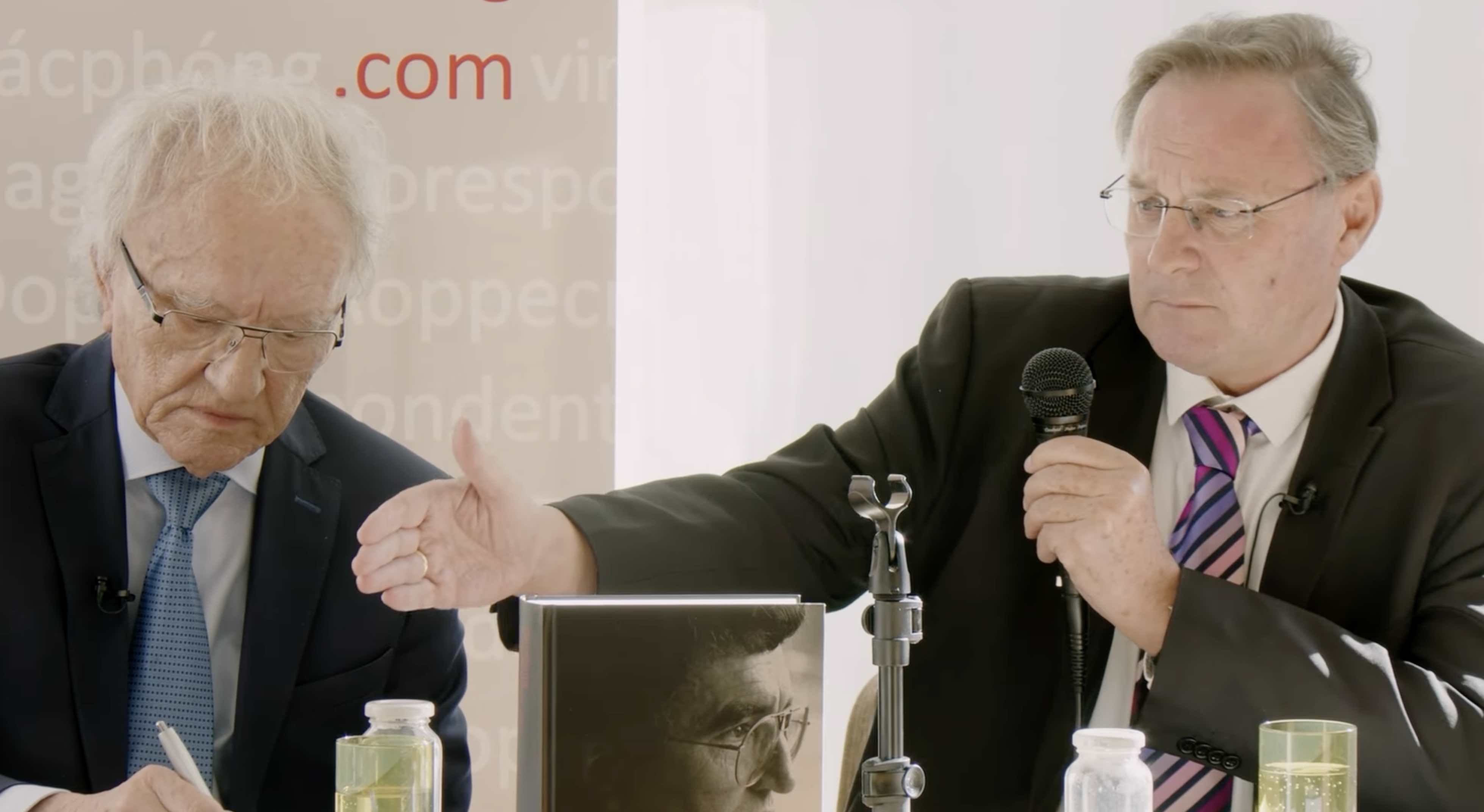
Gehler: Kohl exhausted and crushed
The diary reveals that Helmut Kohl was not this relentless climber on the path to German reunification, but that he also had phases in which he hesitated, was uncertain, even crushed, and exhausted by the rapidly unfolding events.
In Horst Teltschik, he had someone at his side who pushed him, spurred him on, encouraged him and also stood by him when the going got tough. For example, there was fierce opposition after the speech in the Bundestag on 28 November 1989 (with the ten-point plan). Eduard Shevardnadze, the then Soviet Foreign Minister, suggested that the German Chancellor's behaviour was worse than that of Adolf Hitler. This speech to the Bundestag was followed by many sceptical and negative reactions. But Teltschik encouraged the Chancellor to stick to his line.
A very short window of opportunity
The finale with the two-plus-four negotiations was dramatic. In historical research, we had long assumed that the economic, monetary and social union of July 1, 1990 and the German State Treaty had worked out and thus in fact anticipated intra-German unity. The election of the People's Chamber in March 1990 was also a plebiscite for German unification and effectively marked the end of Hans Modrow's reform-oriented government.
But the finale was still very exciting because there were repeatedly significant Soviet credit demands, which often pushed Bonn to the limit of possibilities. In these years 1989, 1990 and 1991, the Soviet Union was engaged in a dramatic struggle for existence. The question was whether the Soviet Union was even able to supply its own population with food. In this situation, you have to be very clear: It was the very short time window between February 1990 and September 1990 when the iron could be forged.
Because then came the Second Gulf War, Saddam Hussein invaded Kuwait, and American interest turned away from the German question. You have to see that context. There was only this window of opportunity! As Helmut Kohl's closest advisor, Horst Teltschik was a man who acted with tenacity and insistence, but also with competence. This helped Kohl greatly in achieving the breakthrough. Teltschik played a major role in the most important moments of decision-making.
Portugalow as a “weather vane from Moscow”
An example of one of these moments: How do you react to a Soviet emissary named Nikolai Portugalov, advisor to Gorbachev and former Soviet ambassador in Bonn, who shows up on November 21 and develops thoughts about Mr. Telchik that he could only perceive as sensational? For Telchik, Portugalov was a kind of weather vane from Moscow. At every meeting, he experienced a piece of the current discussion within the Soviet leadership. Portugalow had a multi-page handwritten record with him, which Telchik simply took from him and presented to Kohl. Seven days later, Kohl gave his well-known speech in the Bundestag with the ten-point plan.
(Recorded by Ewald König)
The korrespondenten.cafe was published in full as a special edition of the talk show series diplo.international Broadcasted on the capital broadcaster TV Berlin. Here is the link to the YouTube video: TV Berlin YouTube channel
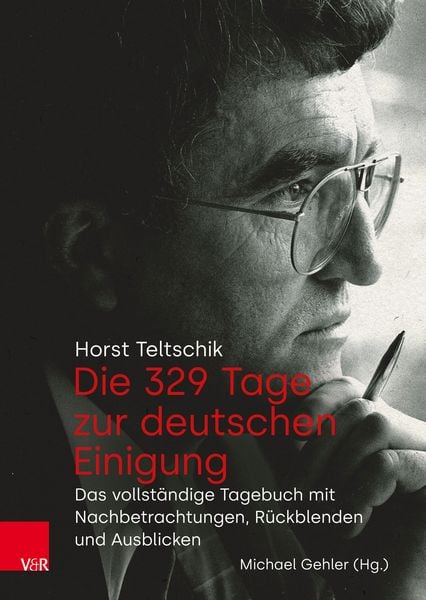
The book: “The 329 Days of German Unification/The Complete Diary with Follow-Up, Flashbacks and Outlooks” by Horst Teltschik, edited and introduced by Michael Gehler, Vandenhoeck & Ruprecht Verlag, 992 pp., ISBN 978-3-525-30340-5, 89€.

